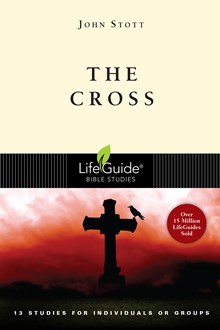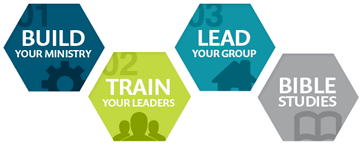Overview
These 13 inductive Bible studies based on John Stott's book The Cross of Christ show you how the cross transforms everything—your worship, your call to mission, and your ability to love your enemies or face suffering.
Introduction
Getting the Most Out of The Cross
This section introduces the topic, explains the structure followed in each study and offers tips for those approaching the study on their own as well as those participating in a group.
Session One
The Centrality of the Cross
We cling to the work of the cross as the center of our faith. What do you think most people consider the heart of Christianity?
Isaiah 53
Session Two
Why Did Christ Die?
Although Jesus is brought to his death by human sins, he does not die as a martyr. On the contrary, he goes to the cross voluntarily, even deliberately. How do you respond to the idea that Jesus' crucifixion was done by as well as for humanity?
Matthew 27:11-26
Session Three
Looking Below the Surface
When Jesus knew that he was about to die, he gave instructions to his disciples for how they should remember him. When has taking Communion been especially moving or meaningful to you?
Mark 14:12-26
Session Four
The Problem of Forgiveness
Do you think the concept of sin is overemphasized or underemphasized today? What is your reaction to the prominence of God's wrath and judgment in his passage?
Romans 2:1-11
Session Five
Satisfaction for Sin
Paul twice says that Christ's death demonstrates God's justice. How would you explain his repeated statement?
Romans 3:19-26
Session Six
Ransomed by God
Christ's death is called a "ransom." How is God's ransom different from our ideas of ransom?
Hebrews 9:11-28
Session Seven
Justified
Justification bestows on us a righteous standing before God. When did you unexpectedly receive something you didn't deserve? How did it come about?
Titus 3:3-8
Session Eight
The Revelation of God
Christ is called "the true light." How would you distinguish between a true light and a false light? What about God is still mysterious to you?
John 1:1-18
Session Nine
The Conquest of Evil
When you see or hear the word evil, what images come to mind? Paul says confidently that believers have entered into the fullness of God in Christ, "who is the head over every power and authority." What are the implications for how we should view evil?
Colossians 2:6-15
Session Ten
The Community of Celebration
Peter identifies Christians as people who have received mercy. What implications do you see for how believers should regard one another?
1 Peter 2:4-10
Session Eleven
Self-Understanding and Self-Giving
What contemporary ideas of self does Jesus contradict in this passage?
Luke 9:23-27; 12:22-34
Session Twelve
Loving Our Enemies
Does the cross commit us to a nonviolent acceptance of all violence? What do you think Paul means by "hate what is evil"?
Romans 12:9; 12:14–13:5
Session Thirteen
Suffering and Glory
What is the relationship between Christ's suffering and ours? How does the cross speak to us in our pain?
Hebrews 4:14-16; 5:7-9
Total number of pages—80 pages
John Stott is known worldwide as a preacher, evangelist and communicator of Scripture. For many years he served as rector of All Souls Church in London, where he carried out an effective urban pastoral ministry. His many books include Why I Am a Christian and The Cross of Christ. He is a coeditor of The Bible Speaks Today series, and wrote several individual volumes in the series. InterVarsity Press's John Stott Bible Study Guides are based on that series.





